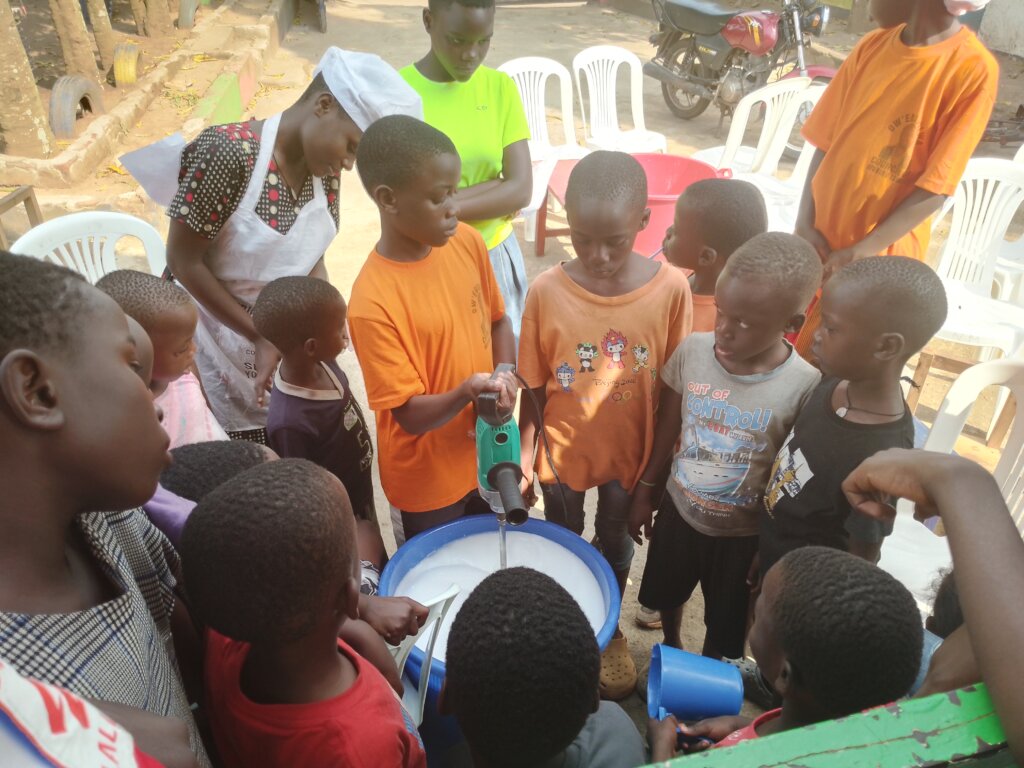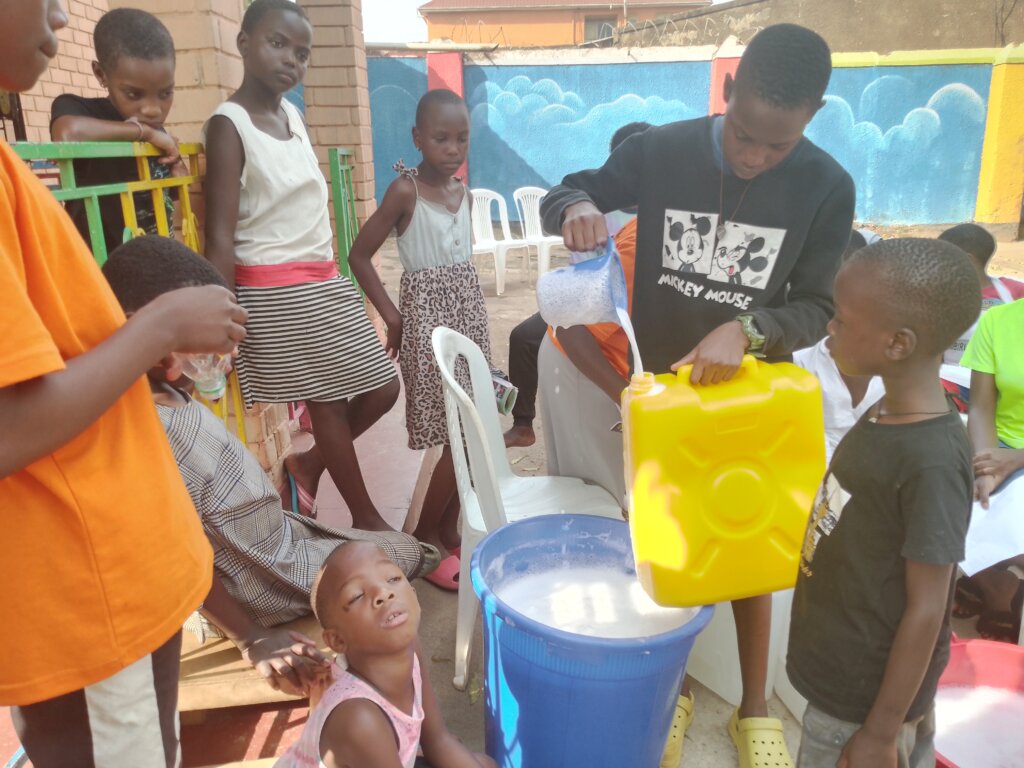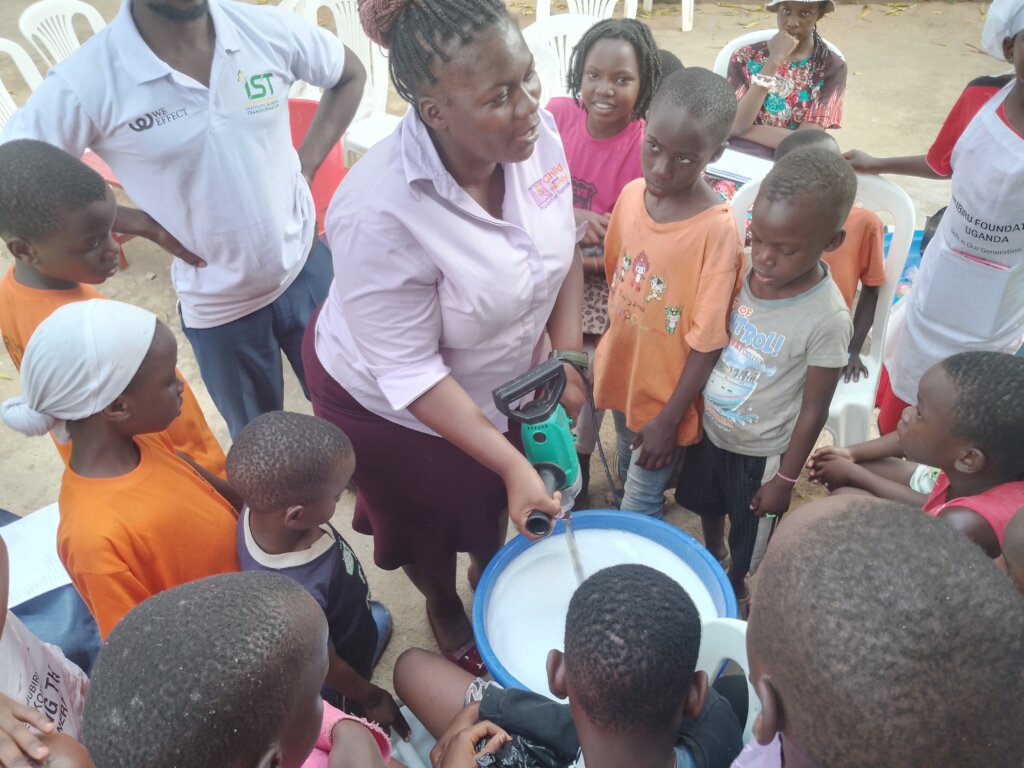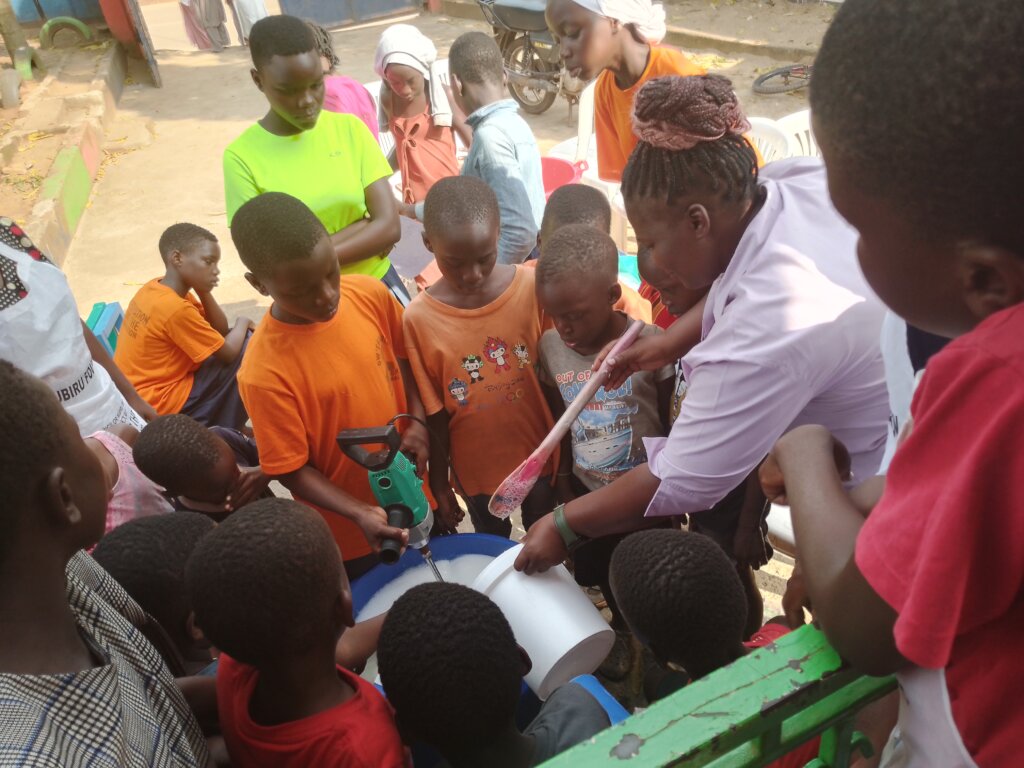By Ruth Nakalembe | Project Officer
Empowering Adolescents in Hygiene, and Soap-Making for Health and Self-Reliance"
Introduction
This quarter focused on supporting the health needs of adolescents in Uganda through practical sessions on first aid, hygiene and sanitation, and skills training in making liquid soap for handwashing. These activities aimed to promote health and hygiene practices, equip adolescents with basic first aid skills, and empower them with income-generating opportunities.
2. Key Activities Conducted
2.1 First Aid Training
20 adolescents per session, totaling 100(30boys and 70girls) participants across different training sites attended.
Training Content:
Basics of first aid, including wound care, treating minor burns, and responding to injuries.
CPR techniques and how to handle choking emergencies.
The importance of remaining calm and seeking professional help when needed.
Practical Demonstrations: Hands-on practice sessions allowed participants to apply techniques using first aid kits provided during the training.
Outcome: Adolescents reported increased confidence in managing minor emergencies at home and school.
2.2 Hygiene and Sanitation Training
Objective: To improve personal and community hygiene practices among adolescents.
Key Topics Covered:
Proper handwashing techniques and the importance of washing hands with soap.
Safe water storage and usage to prevent waterborne diseases.
Managing waste and maintaining clean school and home environments.
Interactive Activities:
Role-play scenarios on good hygiene practices.
Peer-to-peer education sessions where participants shared what they learned.
Impact: Participants showed a clear understanding of hygiene practices, with many committing to sharing the knowledge within their families and communities.
2.3 Liquid Soap Making Training
Participants: Over 92 adolescents were trained in small groups for hands-on sessions.
Training Content:
Ingredients required for liquid soap and their measurements.
Step-by-step guide on preparing and mixing ingredients safely.
Packaging, storage, and marketing strategies for income generation.
Outcome:
Adolescents successfully produced liquid soap during the training.
Many expressed interest in starting small businesses to supply liquid soap to their schools and communities.
The soap-making skills also reinforced the importance of regular handwashing.
3. Highlights of the Quarter
Skills for Sustainability: Liquid soap-making training provided participants with a potential source of income while promoting hygiene.
Knowledge Retention: Post-training assessments indicated high retention of first aid and hygiene knowledge among participants.
4. Challenges Encountered
Resource Constraints: Limited first aid kits and soap-making materials required careful planning to ensure equitable access across all sessions.
Time Constraints: Some sessions had to be extended due to the interactive nature of practical demonstrations.
5. Recommendations
Resource Mobilization: Seek partnerships to provide more first aid kits and soap-making supplies to scale up the program.
Follow-Up Activities: Conduct follow-up sessions to monitor the practical application of skills and knowledge.
Community Engagement: Engage parents and community leaders to reinforce hygiene practices and promote the sale of liquid soap.
6. Way Forward
Organize refresher courses for adolescents to reinforce their first aid, hygiene, and soap-making skills.
Introduce peer-led hygiene clubs in schools to sustain behavior change and knowledge sharing.
Partner with local businesses to support adolescents interested in starting soap-making businesses.
7. Conclusion
The activities conducted this quarter have empowered adolescents with essential health, hygiene, and entrepreneurial skills. By equipping them with practical knowledge in first aid, sanitation, and soap-making, the program has contributed to their overall well-being and set the foundation for sustained health improvements and self-reliance.
By Ruth Nakalembe | Project Officer
By Nakalembe Ruth | Livelihood officer
Project reports on GlobalGiving are posted directly to globalgiving.org by Project Leaders as they are completed, generally every 3-4 months. To protect the integrity of these documents, GlobalGiving does not alter them; therefore you may find some language or formatting issues.
If you donate to this project or have donated to this project, you can receive an email when this project posts a report. You can also subscribe for reports without donating.
Support this important cause by creating a personalized fundraising page.
Start a Fundraiser


